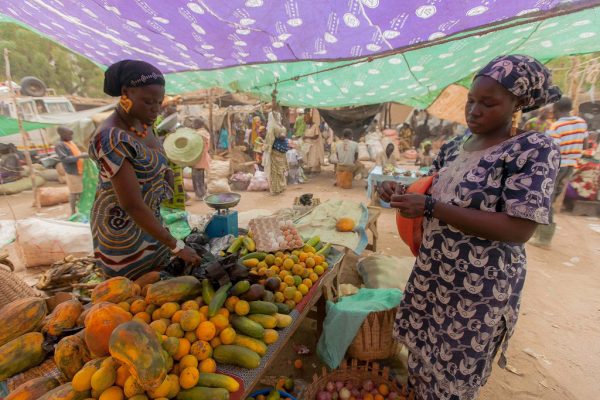
The United Nations Security Council is reviewing new concerns about security and terrorism in the Sahel, and the region is a key focus of the United States’ new Africa strategy announced by Ambassador John Bolton in December. Bolton underscored the link between the stagnation of economic progress and the proliferation of violent extremism across the continent, with a continued emphasis on local ownership of development and counterterrorism efforts. Bolton lauded the G5 Sahel Joint Force as a model for similar initiatives throughout the region: “The G5 Sahel Joint Force…is a great example of the enormous potential for African joint security cooperation. … As this force gains capacity, G5 countries must remain in the driver’s seat.” While a potentially surprising fixture of Bolton’s remarks, mentions of the G5 Sahel Joint Force make sense in the context of his address, as the initiative has strong international support and buy-in from the five member states. The ultimate success of initiatives like the G5 Sahel will depend on local ownership of military and development efforts and the ability of each nation to create economic opportunity to counter the threat of violent extremism.
The G5 Sahel is a regional partnership comprised of the governments of Burkina Faso, Mali, Mauritania, Niger, and Chad that was formed in 2014 as a response to the security crisis. Under the umbrella of the G5 Sahel are both counterterrorism and development initiatives, including the G5 Sahel Joint Force. The Joint Force, a combined military effort between the five countries of the G5, is currently supported by the United States, France, the European Union, and funding from each of the five member states. In December 2018, both France and the European Union committed additional funding for development efforts in the G5 Sahel countries, bringing their combined pledges to nearly $1.5 billion USD (1.3 billion euros).
Across the Sahel, the influx of terrorism poses a distinct threat to the potential for positive economic growth. During security crises, widespread insecurity and violence suppress economic growth and lead to increased radicalization. The G5 Sahel was created in an attempt to counter this trend, with an acknowledgement that an armed response alone cannot fully address the threat of terrorism. Although the G5 Sahel has openly committed to working towards sustainable regional development, most of its non-military efforts have focused on high-level national coordination on international investment. While these combined efforts may be effective in combatting the most immediate threats, lasting peace and economic stability require inclusive engagement from the private sector and civil society so that development efforts include the voices of those most affected by violent extremism.
Launched in July 2018, the Center for International Private Enterprise (CIPE)’s regional program in the Sahel aims to bring together the business community, civil society, and the public sector to counter violent extremism through economic development. Through a series of country-based studies on the economic impact of insecurity across the Sahel, CIPE and its five local implementing partners are laying the groundwork for elevated engagement on matters of security and development at the national and regional level. In 2019, CIPE partner coalitions, comprised of private sector and civil society representatives, will work together to identify solutions to counter the impact of insecurity on economic development throughout the Sahel. CIPE’s program in the Sahel continues to foster the link between the private sector, civil society, and the government in the countries of the G5 Sahel to enable a more inclusive structure for policy dialogue on the inseparable issues of security and development.
Local ownership of counterterrorism and development initiatives is crucial. Successful and sustainable local ownership requires input from citizens themselves, including members of the private sector and civil society, and cannot rely solely on government buy-in at a national level. Countering violent extremism cannot happen overnight, but inclusive and participatory local ownership of initiatives like the G5 Sahel can help build a more peaceful and stable future throughout the region.
Naomi Sand is a Program Assistant for Africa at the Center for International Private Enterprise.
Published Date: January 11, 2019
